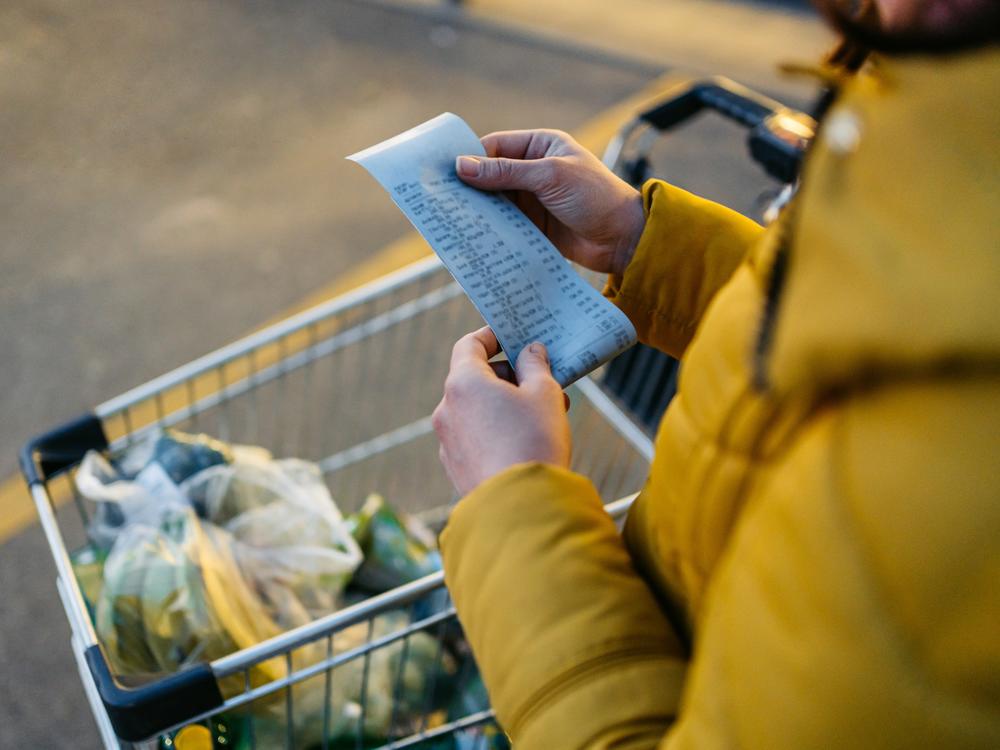Section Branding
Header Content
10 more clever and commonsense ways to save money on groceries
Primary Content
Food prices are still high, but your grocery bill doesn't have to be.
Last month, we shared tips on how to save money at the supermarket from Beth Moncel, founder of the cooking blog Budget Bytes. She advised shoppers to look up weekly deals, be wary of bulk buying and stick to the grocery list.
We asked our audience members to share their own advice too. We received over 50 clever tips on the matter, ranging from the practical (check your receipt for errors) to the creative (use artificial intelligence to create recipes with ingredients you have at home).
Here's a selection of their responses. They have been edited for length and clarity.
Stay close to home
If you must visit multiple stores, make sure they are close to your home or else the gas expense will eat away at the money saved at the store. — Manuel Ramos
Check your receipt
Check the receipt before you leave the parking lot. If you find an error, which mostly happens on sale items, you can get a refund right away. If you don't check until you get home, you're more likely to let it go. —Lisa Gluskin
Ask about senior discounts
I'm a senior, so I try to shop on senior discount days and save 5%. The stores don't advertise this, but if you Google it or ask about it at the customer service desk, you can find out what day of the week they do this. It varies by store. —Elyce O'Malley
Cook with whole turkey and chicken
When I buy meat, I buy whole turkey and chicken. Both are cheaper by the pound, and the latter is so easy to make in a slow or pressure cooker. I'll also buy special meats after the holidays. You can buy spiral hams and whole turkeys for cheap after Easter and Thanksgiving. —Vanessa Reed
Buy inexpensive cuts of meat
If your dish is going to cook for a long time, the exact cut of beef may be unimportant. So I use the least expensive roast in the store. At the usual one-hour cooking time, it may be a little tough, but add an extra 40 minutes and it will turn out great. —Joseph Bean
Process your own food
Pop your own corn. Roast chickpeas by buying them dry, soaking them overnight and putting them into a low-temperature oven. Buy large containers of plain yogurt, divide them up and add spices, a little jam or other flavors. —Eve Elzenga
Get a little help from AI
I recently started using ChatGPT to help use up food in the kitchen. For example, this weekend, I had a tomato, some bell peppers, half an onion, a half dozen sweet potatoes, broccoli and leftover roasted chicken in the fridge.
I told ChatGPT I wanted to make something for breakfast and dinner using these ingredients. The tomato, peppers and onion went into egg cups — breakfast for the week — and the potatoes, broccoli and chicken became twice-baked stuffed sweet potatoes for dinner. Both were delicious, and I’ll enjoy them this coming week too! —Chris Brainard
Make your own bread
Learn how to make bread. This saves a ton of money, and you can occasionally supplement with store-bought bread if needed. About $8 worth of ingredients makes about eight to ten loaves of basic sandwich-style bread. It doesn’t have preservatives, so freeze what you can’t use in a week. —Tracey Rocco
Flip the script (and cook creatively)
Instead of planning a meal and then buying overpriced ingredients, try flipping the script. Buy what's on sale and plan your meal around that.
In addition, have a few meal options for each type of protein that include a variety of flavors and different cooking methods. For example, you probably wouldn’t want to eat deep-fried food three days in a row.
If spareribs are on sale, I’ll buy them and make either deep-fried salt and pepper spareribs, braised Filipino adobo, grilled hoisin spareribs or Japanese curry. If ground beef is on sale, I’ll make fried smash burgers or Japanese hamburger steak. —Mark Hagiwara
Grow your own herbs and veggies
Grow higher-priced items that you buy frequently, like rosemary and basil. Fresh herbs are often $2 to $3 for a small bunch — about the same price as a packet of seeds. Or save a few sprigs from that bunch of herbs and root them in water then plant them. I have a basil plant in a pot that I started two years ago.
Cherry tomatoes are also more expensive to buy but they're one of the easiest types of tomatoes to grow at home. —Katherine MacKinnon
This story was written by Malaka Gharib. It was edited by Beck Harlan. The visual editor is Beck Harlan.
We'd love to hear from you. Email us at LifeKit@npr.org. Listen to Life Kit on Apple Podcasts and Spotify, or sign up for our newsletter.

